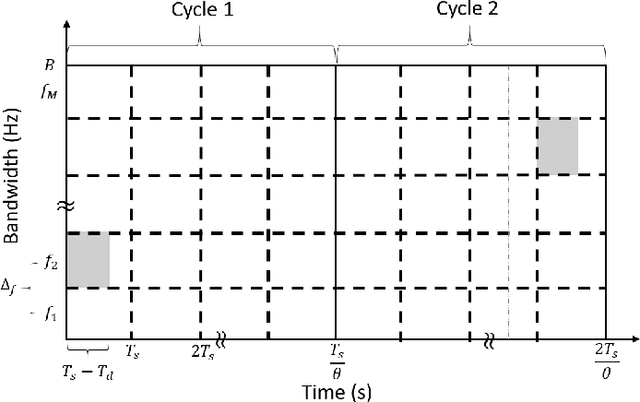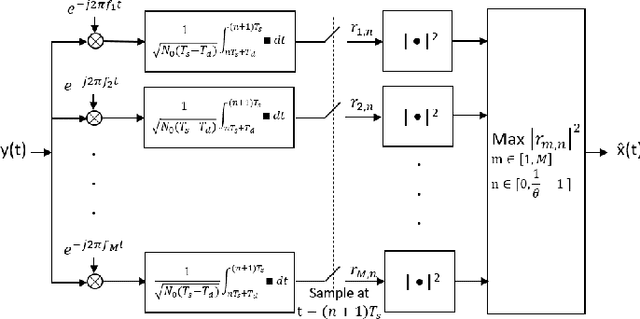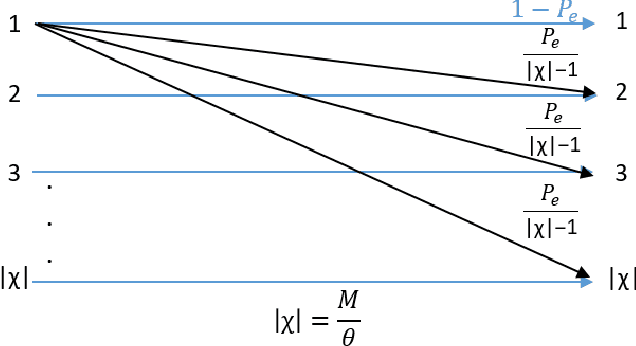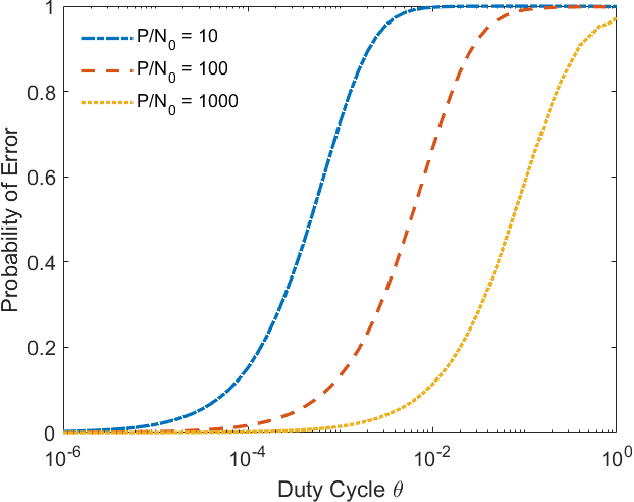Kathleen Yang
Analog Compressed Sensing for Sparse Frequency Shift Keying Modulation Schemes
May 31, 2022



Abstract:There is a growing interest in signaling schemes that operate in the wideband regime due to the crowded frequency spectrum. However, a downside of the wideband regime is that obtaining channel state information is costly, and the capacity of previously used modulation schemes such as code division multiple access and orthogonal frequency division multiplexing begins to diverge from the capacity bound without channel state information. Impulsive frequency shift keying and wideband time frequency coding have been shown to perform well in the wideband regime without channel state information, thus avoiding the costs and challenges associated with obtaining channel state information. However, the maximum likelihood receiver is a bank of frequency-selective filters, which is very costly to implement due to the large number of filters. In this work, we aim to simplify the receiver by using an analog compressed sensing receiver with chipping sequences as correlating signals to detect the sparse signals. Our results show that using a compressed sensing receiver allows for the simplification of the analog receiver with the trade off of a slight degradation in recovery performance. For a fixed frequency separation, symbol time, and peak SNR, the performance loss remains the same for a fixed ratio of number of correlating signals to the number of frequencies.
Wideband Time Frequency Coding
May 31, 2022



Abstract:In the wideband regime, the performance of many of the popular modulation schemes such as code division multiple access and orthogonal frequency division multiplexing falls quickly without channel state information. Obtaining the amount of channel information required for these techniques to work is costly and difficult, which suggests the need for schemes which can perform well without channel state information. In this work, we present one such scheme, called wideband time frequency coding, which achieves rates on the order of the additive white Gaussian noise capacity without requiring any channel state information. Wideband time frequency coding combines impulsive frequency shift keying with pulse position modulation, which allows for information to be encoded in both the transmitted frequency and the transmission time period. On the detection side, we propose a non-coherent decoder based on a square-law detector, akin to the optimal decoder for frequency shift keying based signals. The impacts of various parameters on the symbol error probability and capacity of wideband time frequency coding are investigated, and the results show that it is robust to shadowing and highly fading channels. When compared to other modulation schemes such as code division multiple access, orthogonal frequency division multiplexing, pulse position modulation, and impulsive frequency shift keying without channel state information, wideband time frequency coding achieves higher rates in the wideband regime, and performs comparably in smaller bandwidths.
 Add to Chrome
Add to Chrome Add to Firefox
Add to Firefox Add to Edge
Add to Edge